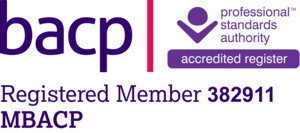MY APPROACH TO COUNSELLING
My approach to counselling is a person-centred one which recognises that the most important part of therapy is the relationship between the therapist and the client and is essential for them to experience positive change and healing. Person-Centred Counselling is best summed up in the words of the therapist Roger Casemore:
“There are several different approaches to counselling, and I have been trained to work as a person-centred counsellor. There are some important differences between this approach and the other major approaches to counselling.
First, I have a very strong belief in the positive nature of all human beings. We will always strive to do the best for ourselves, no matter what conditions we find ourselves in or what problems we face.
Secondly, I believe in the uniqueness and worth of every individual human being and that we all deserve respect for our capacity to choose our own directions in life and to select and choose our own values to live by.
Thirdly, I believe that you are the only expert in your own internal world and the only person who really knows how you feel. You are the only person who can decide who and how you should be, the only person who can decide what the meaning of your life is and what you should do with it.
Fourthly, I believe that the most important thing in counselling is the therapeutic relationship that will develop between us, in which I hope that you will really feel heard and understood, in a non-judgemental way, and that you will experience me as a real and genuine person in this relationship. I will often be very open with my feelings as I experience them here, rather than playing the role of counsellor or expert whom you have come to ask for solutions to your problems. I am not an expert: I do not have any answers to your problems and difficulties. I believe that the answers, if there are any, lie within you. I will not probe or pry into anything you tell me, I will only work with what you choose to talk about. The only questions I will ask will be to check that I have heard and understood your feelings or to clarify the meaning of what you are telling me.
I am quite used to a lot of silence, tears and other strong feelings being expressed. I will be very accepting of what you tell me and, at the same time, I will notice when the words you say seem to be at odds with how I am experiencing you. I might even notice these things out loud, as I did at the start of this session, when I saw that you seemed to be trying to look very calm and in control and yet there were lots of little signals that seemed to suggest to me that you were quite tense. I will do my best not to interpret anything you do or say with my meanings, but I will try to clarify what these things mean for you and how you are really feeling. I will try to be sensitive in what I say to you and at the same time I would want you to experience me as being really authentic with you and not putting on any pretence. I will be very direct and honest in sharing how I experience you and the things you talk about and you may find this way of working quite challenging at times.
What I will try to do here is to create a trusting relationship between us that will provide a safe space in which I hope you will feel very accepted and understood so that you can be in touch with your feelings and talk, without fear, about anything which concerns you. I have a strong belief that we need to own and value all our feelings, even the most uncomfortable ones, and to be able to say how we feel and to insist on being heard and understood. I hope that you will experience that here with me so that you will feel able to deal more effectively with the feelings that are troubling you.’ That, in a nutshell, is the person-centred approach to counselling.”
(Roger Casemore - Person-Centred Counselling in a Nutshell)
"The curious paradox is that when I accept myself just as I am, then I change."
Carl Rogers
Photos courtesy of Wildscape Photography
Home Page
________________________________________________________________
Anxiety- Generalised Anxiety Disorder- Depression- Social Anxiety- Feeling Sad- Panic Attacks- Low Self Esteem- Family Issues- Phobias- Low Self Confidence- Stress- Trauma- Penzance Truro Falmouth Cornwall Liverpool Birmingham Cardiff Edinburgh London Online

